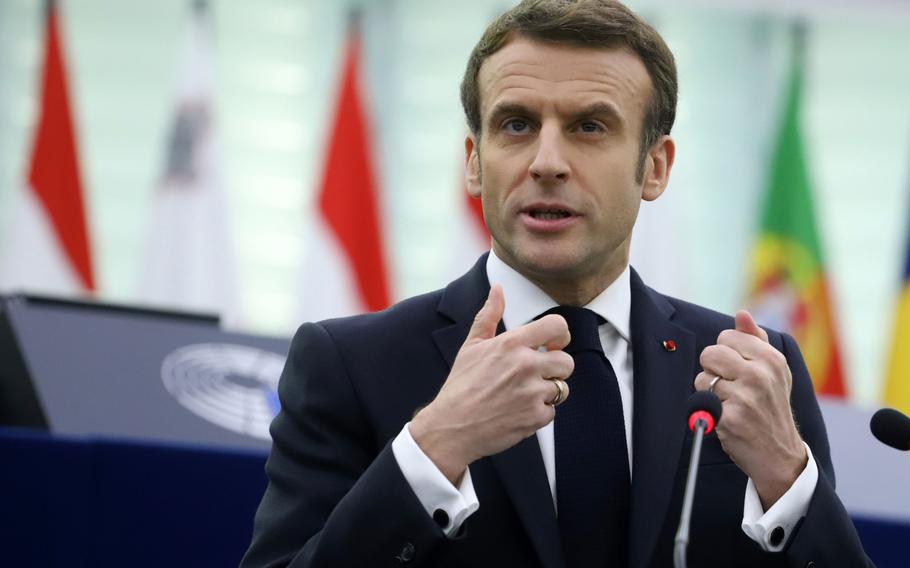
Emmanuel Macron, France’s president, delivers the EU Presidency address in Strasbourg, France, on Jan. 19, 2022. (Valeria Mongelli/Bloomberg)
French and Turkish attempts to help end the war in Ukraine are improving their previously frosty relations.
Emmanuel Macron and Recep Tayyip Erdogan are coordinating their actions as they use access to Russia’s Vladimir Putin to press for a cease-fire and humanitarian corridors to remove at least some civilians from danger.
The French president and his Turkish counterpart spoke around the time of Russia’s Feb. 24 invasion and are looking at a possible bilateral meeting on the sidelines of a NATO summit in Brussels on Thursday, according to a person familiar with the contacts.
Bolstering the effort, the French and Turkish foreign ministers have talked on the telephone and defense ministers met in Brussels, while the countries’ militaries have conducted joint drills in the Mediterranean in recent days. Ali Onaner, Turkey’s ambassador to France, confirmed officials from both countries have been “actively exchanging on peace efforts” while the French president’s office didn’t reply to a request for comment.
It’s a significant shift for a relationship that’s seen Macron and Erdogan spar on a number of issues over the years, including energy exploration in the eastern Mediterranean, Libya’s civil war and the conflict between Armenia and Azerbaijan. More broadly, Turkey’s purchase of a Russian missile-defense system angered several of its NATO allies. They even argued over Islam.
Macron and Erdogan agreed to try and mend ties in an exchange of letters in January 2021. Since then, Turkey has been pursuing a policy of reconciliation with its neighbors, but it’s with France that there’s the most making up to do.
Erdogan’s government has expanded links with Ukraine. It’s also heavily reliant on Russian natural gas, agricultural products as well as tourists, and hasn’t wanted to pick sides. With the invasion again drawing Europe and the U.S. closer, that appears to be changing.
“It looks like Putin is not only bringing long-lost unity to the EU but also reminding Ankara of the benefits of its Western ties,” Gunter Seufert, head of the Turkey division at the German think-tank SWP, wrote in a report.